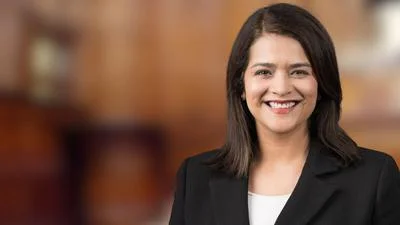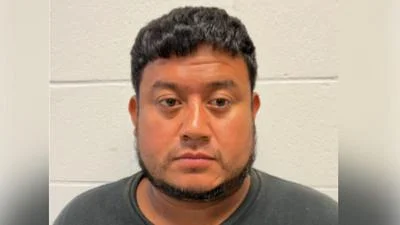Asher Heimermann / Wikimedia Commons
Asher Heimermann / Wikimedia Commons
A Chicago policewoman this week said she and another cop were subjected to barely veiled death threats, banishment from buildings, accusations by senior officers of being “rats,” and even arrests in response to their blowing the whistle on a corrupt crew within the city's police department.
The stunning allegations, the subject of a lawsuit taken by the officer and a partner, have brought further sharp attention to the Chicago Police Department’s so-called “code of silence.”
In a lawsuit against the city, Shannon Spalding and Danny Echeverria accused senior police officers of serious harassment and intimidation after they went to the FBI to allege criminal wrongdoing, including extortion, by a crew of narcotics division officers.
The city settled the lawsuit for $2 million May 31, the day the trial was due to begin, and just days after a judge ruled that Mayor Rahm Emanuel could be called to testify about what he knows of the police department’s “code of silence.”
Following the announcement, the city’s corporation counsel, Stephen Patton, said the treatment Spalding and Echeverria received from supervisors was a result of their job performance, not a code of silence.
“The fact that there is a code of silence and that at least some officers on some occasions don’t report wrongdoing doesn’t mean it happens every time or all the time or that it happened in a particular case,” Patton told reporters in the Everett M. Dirksen U.S. Courthouse, according to a report in the Chicago Tribune.
The city’s legal department did not respond to messages from AMI asking for further comment. The mayor’s office referred questions to the legal department. Following the settlement, Police Superintendent Eddie Johnson said he is setting up an anonymous way for officers to report wrongdoing.
Spalding, still a serving officer, described the deep depth of animosity directed toward her, and claimed to be in danger from her own after her cover was blown - deliberately, she believes.
“Wear your vest because if they can shoot you from across the parking lot, they will,” Spalding said she was warned after being told command officers were so angry with her she needed to be careful coming and going from the police station.
And on another occasion, she and Echievierra, were pulled aside and told they “would not receive back up on the street.”
“I said to the supervisor: ‘Do you mean to tell me if we were in a 10-1 right now, a police emergency, help is needed, you are not going to respond,’ and he said: ‘I can’t, I have orders from the bosses,’” Spalding said in her first in depth interview Monday, with the PBS affiliate, WTTW.
Over the years, Spalding claims to have been arrested, banned from buildings, given menial jobs, barred from overtime, and switched from unit to unit. On at least two occasions supervisors used the term “rats;” and one time “motherf***ing rats,” according to the original complaint filed by Spalding and Echeverria.
In a report published in April, the Chicago Police Accountability Task Force, set up in the wake of the police shooting death of 17-year-old Laquan McDonald, found police disciplinary statistics “give real credibility to the widespread perception that there is a deeply entrenched code of silence supported not just by individual officers, but by the very institution itself.”
In addition, the task force said collective bargaining agreements “between the police unions and the City have essentially turned the code of silence into official policy.”
The agreements discourage reporting misconduct by requiring affidavits, prohibiting anonymous complaints and requiring that accused officers be given the complainant’s name early in the process, the task force found.
Fraternal Order of Police president Dean Angelo described the report as “biased,” and claimed the task force authors had an agenda against the police before starting their work.
In connection with the case taken by the two officers and the settlement, Angelo told AMI Newswire Friday that the police union was not asked to help the pair. “All I do know is that there was allegations made by these officers and they took it up the chain of command,” he said.
Spalding told WTTW’s Chicago Tonight of her experiences in the months and years after revealing to the FBI her suspicions that Sgt. Ronald Watts and other CPD officers were extorting payments from drug dealers in return for protection.
“That’s one of the allegations, that’s one of many. I mean it was extortion, false arrest, false imprisonment, actually running a drug enterprise of their own,” she told the program..
They told a supervisor who, according to Spalding, replied: “It did not happen, you did not hear this, make it a negative, none of this happened.”
After realizing that nothing was being done internally, they went to the FBI. But later, senior officers in the CPD were informed. And soon, their names were revealed, Spalding believes deliberately.
“That was the beginning of the end because that was when the harassment, the intolerable work conditions began, and they began immediately,” she told Chicago Tonight.





 Alerts Sign-up
Alerts Sign-up